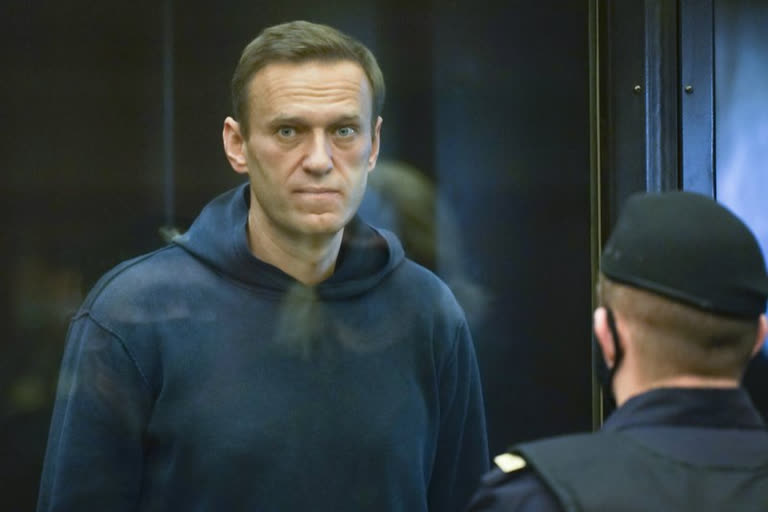Moscow: Russian opposition leader Alexei Navalny faced a court hearing on Tuesday that could end with him being sent to prison for years.
The 44-year-old Navalny, an anti-corruption investigator who is the most prominent critic of President Vladimir Putin, was arrested Jan. 17 upon returning from Germany, where he spent five months recovering from a nerve-agent poisoning that he blames on the Kremlin. Russian authorities deny the charge and claim, despite tests by several European labs, that they have no proof he was poisoned.
Navalny and his lawyers have argued that while he recovering in Germany from the poisoning, he could not register with Russian authorities in person as required by the terms of his probation. Navalny also insisted that his due process rights were crudely violated during his arrest and described his jailing as a travesty of justice.
Read:| Navalny's spokeswoman placed under house arrest
Navalny’s jailing has triggered massive protests across Russia over the past two weekends, in which tens of thousands took to the streets to demand his release, chanting slogans against Putin. Police detained over 5,750 people during Sunday’s rallies, including more than 1,900 in Moscow, the biggest number the nation has seen since Soviet times. Some were beaten.
Most were released after being handed court summons and face fines or jail terms of 7-15 days. Several people faced criminal charges over alleged violence against police.
Navalny’s team has called for another demonstration Tuesday outside the Moscow court building. Police were deployed in force near the court building and cordoned off nearby streets, making random detentions.
After his arrest, Navalny’s team released a two-hour YouTube video featuring an opulent Black Sea residence allegedly built for Putin. The video has been viewed over 100 million times, fueling discontent as ordinary Russians struggle with an economic downturn and the coronavirus pandemic.
Putin insisted last week that neither he nor his relatives own any of the properties mentioned in the video, and his long time confidant, construction magnate Arkady Rotenberg, claimed that he owns it.
As part of efforts to squelch the protests, the authorities have targeted Navalny’s associates and activists across the country. His brother Oleg, top ally Lyubov Sobol and several others were put under house arrest for two months and face criminal charges of violating coronavirus restrictions.
The jailing of Navalny and the crackdown on protests have stoked international outrage, with Western officials calling for his release and condemning the arrests of demonstrators. Russia has dismissed the comments of U.S. officials as interfering in its domestic affairs.
AP



